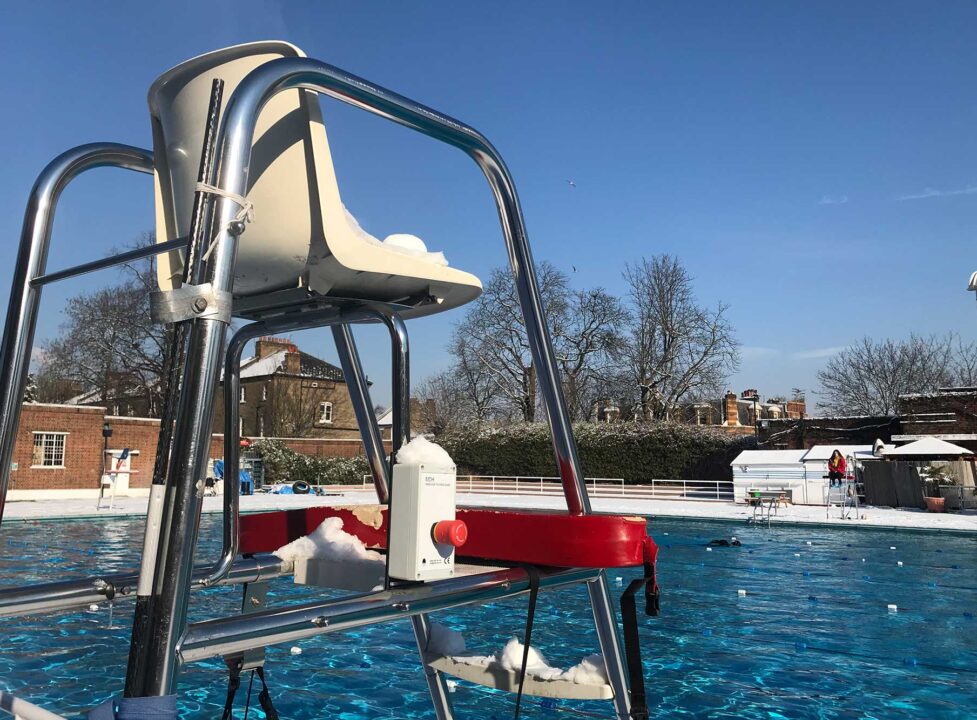The pool temperature is starting to drop so we thought we would give some brief hints on how to get through the Winter and enjoy the challenge of cold water swimming.
First of all, know your limitations. If you have never done this before, or are uncertain in any way, please consult your doctor. This is especially important for swimmers with any heart conditions or suffer from asthma.
If this is your first year you might want to start with a wet suit (and if you want to swim distances this might have to stay on the whole winter). Others might want to reduce this to a rash vest, neoprene gloves or socks. A silicon swimming cap will always be needed, whether this is a single or double layer, bubbled, or neoprene. You might even want to swim heads-up wearing your wooly bobble hat. Whatever makes you happy.
Get into the water gradually. Diving can be too much of a shock for your body and is only for the experienced (or foolish). One thing to be aware of is the “gasp” effect when you start swimming. This is when your body instinctively breaths in and forgets to breath out. Make a conscious effort of blowing air out of your mouth when your head goes underwater. Stay calm and swim with a relaxed stroke and your body should soon settle down and you can then start to enjoy the invigorating sensation of cold water swimming.
Count your lengths and if at any time you feel uncomfortable, faint or cramp, then get out of the pool. Some people are happy with just a few lengths, some like to do more. A typical experienced swimmer, who has done this a number of years, can do a length per degree centigrade, but without the sauna this year that might not be possible.
Whether you take a hot shower after your swim is a debatable point. Some like it, some think it dangerous as it sends cold blood from your extremities back to your core, called “afterdrop”. Either way, you must get dressed as soon as possible so make sure you have warm clothing with you. A thermos of something hot will also help. Star-jumps are also a good way of getting the circulation going again. Moderate shivering is a normal reaction so don’t be too alarmed. However violent shaking is not and if at any point you feel concerned tell another swimmer or a lifeguard.
Enjoy your swimming and we’ll leave you with some wise words from Jonathan Cowie from the Outdoor Swimmer Magazine.


